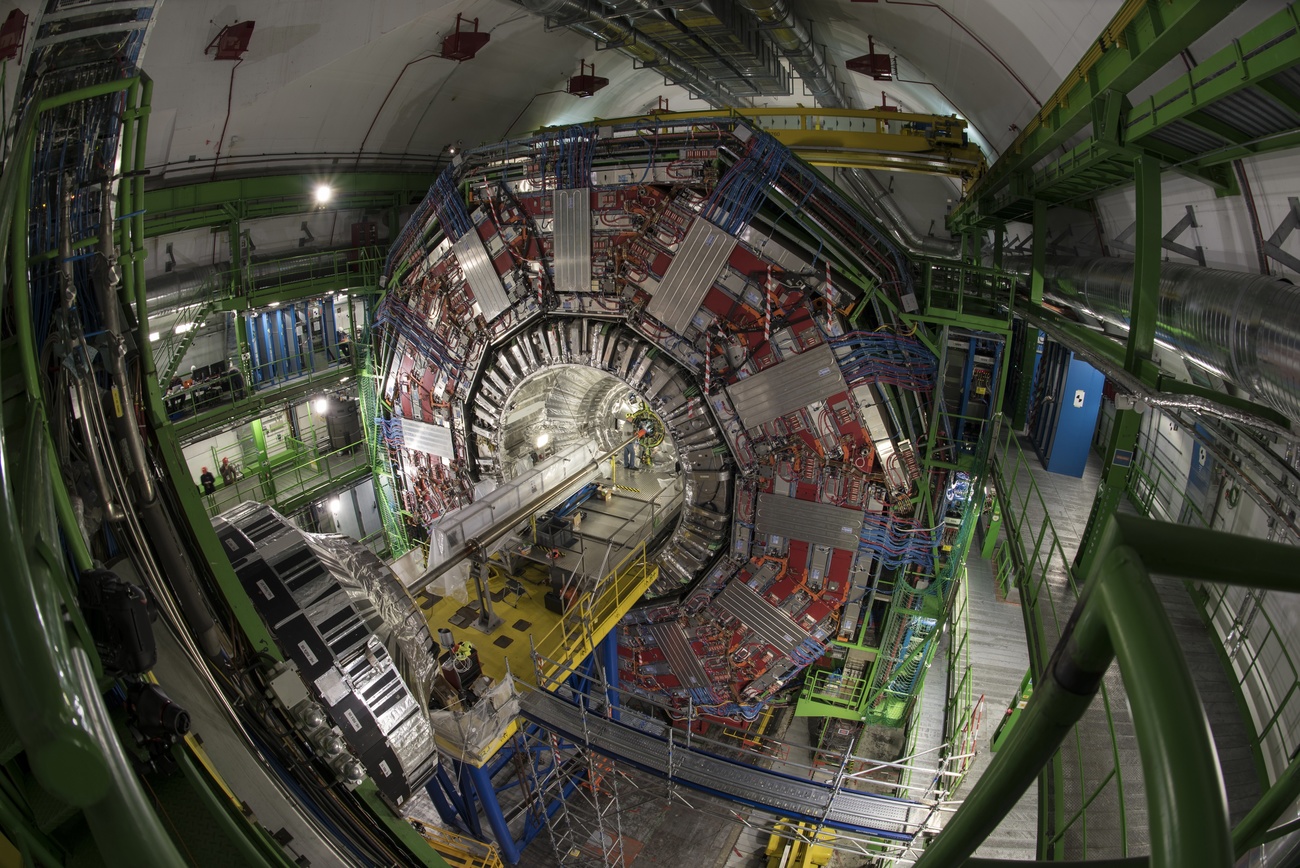
Large Hadron Collider primed to hit record energy levels

Ten years after it discovered the Higgs boson, the world’s biggest particle accelerator is poised to smash together protons at record energy levels at the CERN particle physics laboratory near Geneva, as scientists resume their search for clues to the origins of the universe.
The Large Hadron Collider (LHC) will get back to work on July 5, firing proton beams in opposite directions at nearly the speed of light around its 27-kilometre loop at 13.6 trillion electronvolts (TeV), CERN said on MondayExternal link. The particle accelerator, which has been sitting idle for three years for maintenance, will start its third operational cycle.
Increasing the amount of energy used this time around will provide “greater precision and discovery potential than ever before” and to “collect significantly larger data samples, with data of higher quality than in previous runs,” said CERN, which is located north of Geneva on the French-Swiss border.
The ramping up of the energy and intensity of the beams in the upgraded collider coincides with the tenth anniversary of the LHC’s landmark discovery of the Higgs Boson particle, a long-sought fundamental particle that gives mass to other subatomic components of the universe.
In the third cycle, the LHC is expected to record more collisions of particles than the first two runs combined, allowing for closer examination of the Higgs mechanism and lesser-known physics phenomena.
Among various experiments, scientists hope LHC data will help reveal why matter rather than anti-matter dominates the universe and to uncover the nature of “dark matter” — invisible to all scientific instruments so far developed — which is known to be more plentiful than conventional matter.
The new cycle will also allow for the investigation of quark-gluon plasma, a state of matter that existed in the first 10 microseconds after the Big Bang.

More
CERN scientists restart hunt for answers to mysteries of universe

In compliance with the JTI standards
More: SWI swissinfo.ch certified by the Journalism Trust Initiative



























You can find an overview of ongoing debates with our journalists here . Please join us!
If you want to start a conversation about a topic raised in this article or want to report factual errors, email us at english@swissinfo.ch.